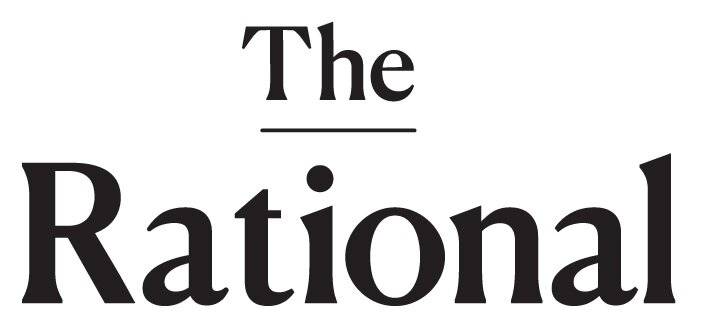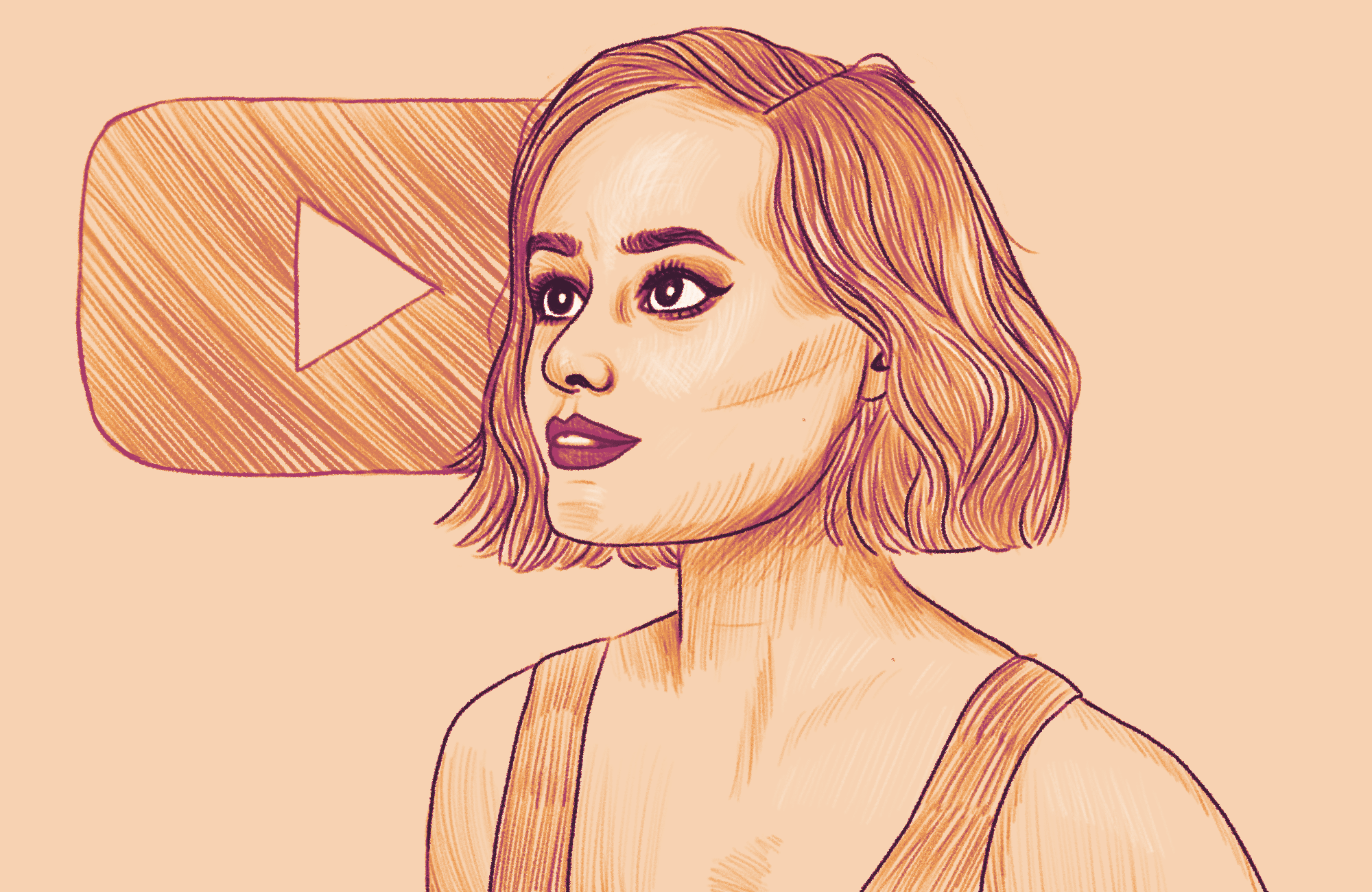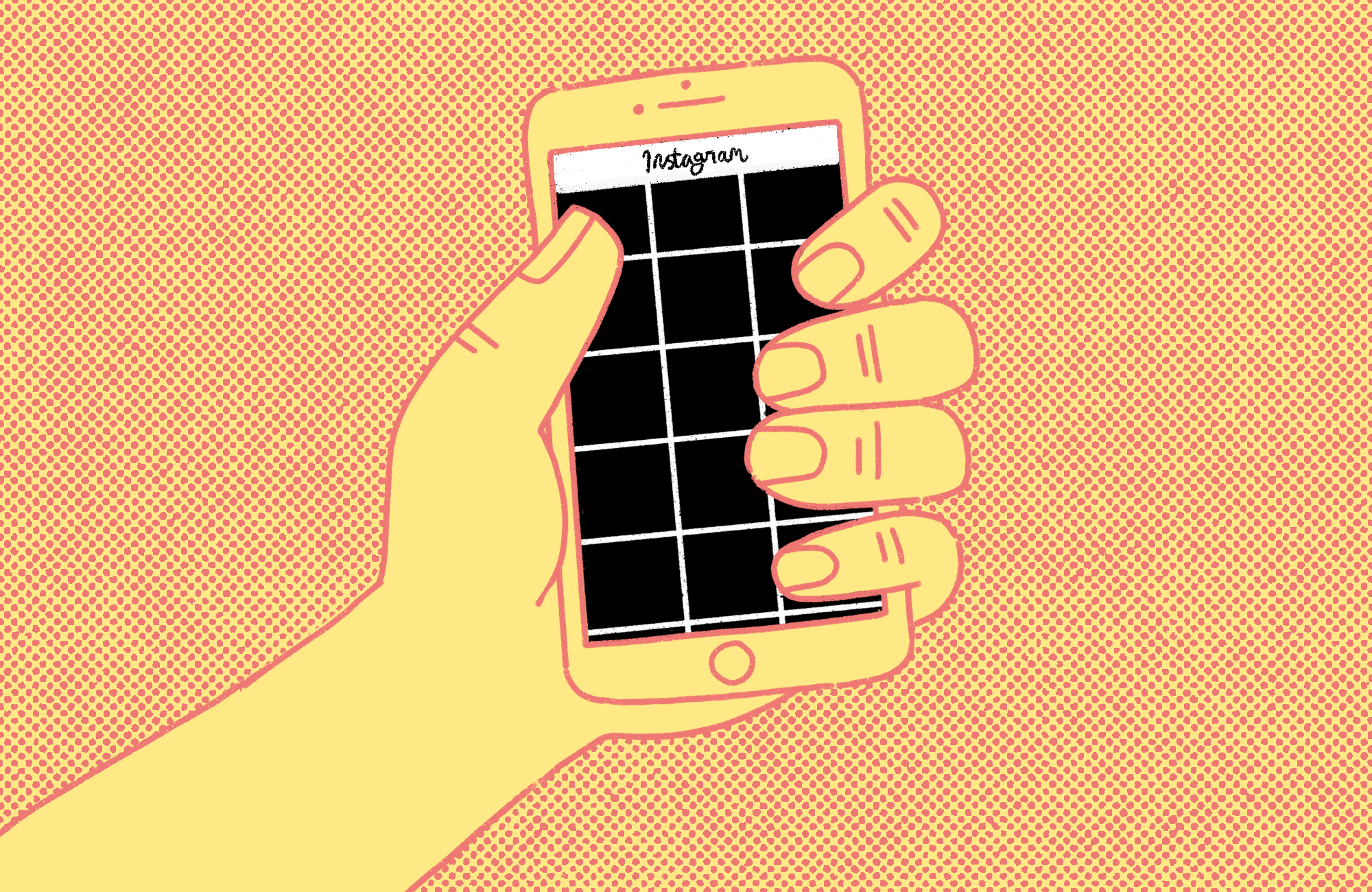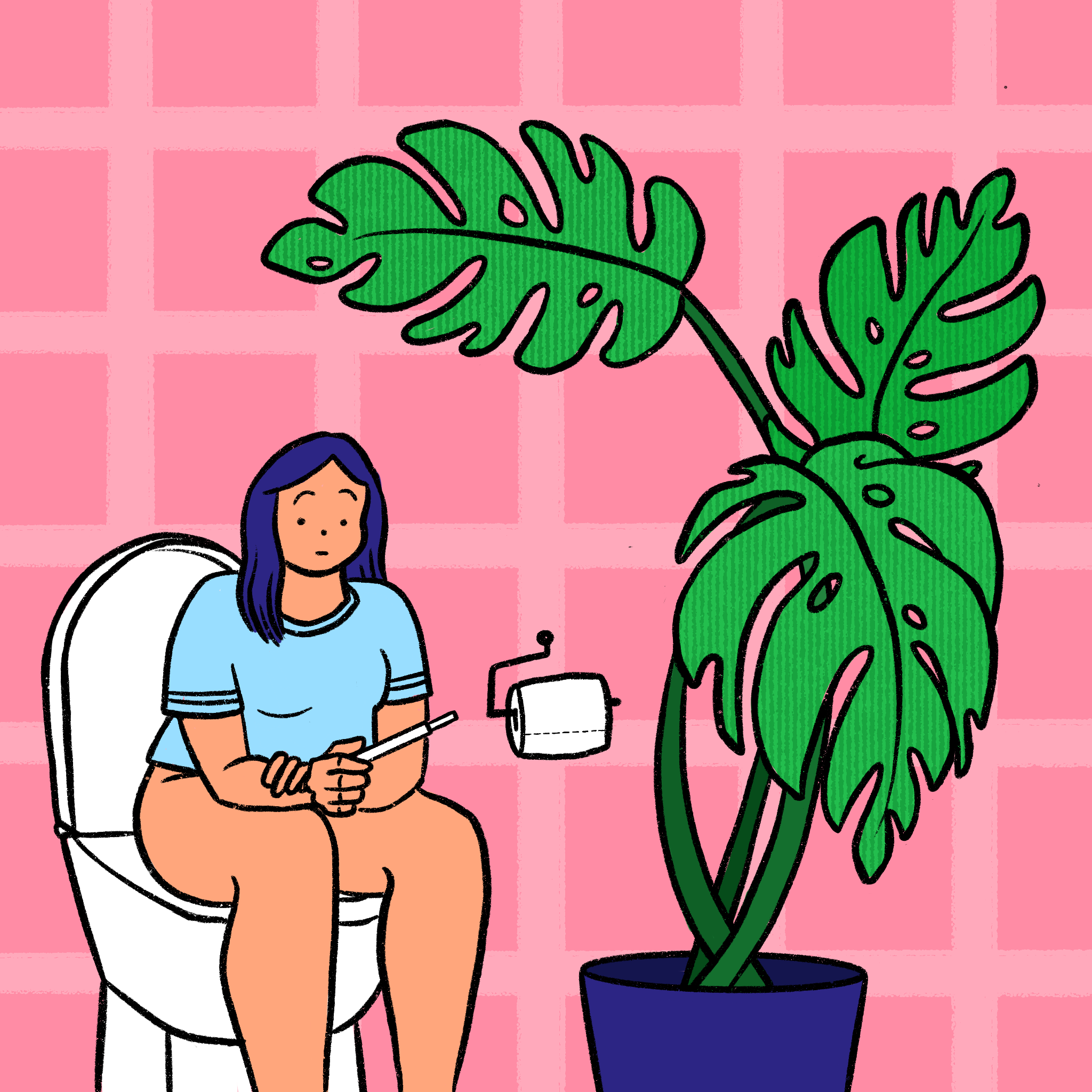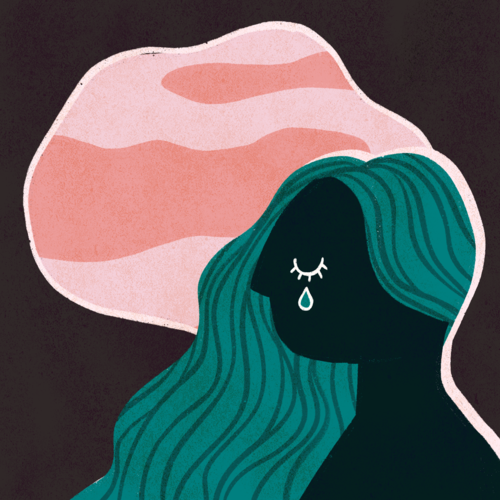Hannah Witton Doesn’t Care If Sex and Disability Are Taboo
The YouTube star and author wants to get you in on the conversation, too.
Illustration of Hannah by Ally Hart
Hannah Witton considers herself a “fairly confident and extroverted person,” which certainly helps when you make a living talking about sex on the internet. Hannah has made a name for herself as only a 20-something can, not just in the UK where she is based, but all over the world thanks to her growing popularity on YouTube.
Hannah’s YouTube channel covers different facets of sexuality with titles like “How to be More Satisfied with Your Sex Life” and “The Truth About Discharge”. Her journey down this path started many years ago. “The more I was learning about it, the more I realized how flawed and lacking my sex education was growing up,” she says. Thanks to the rise of the internet, however, “sexpert” Hannah found a platform to talk about sex and sexuality and to destigmatize these often taboo topics. Armed with a History degree from the University of Birmingham, she has also published two books on the topic: Doing It (2017) and The Hormone Diaries (2019).
Since she began her YouTube career in 2011, Hannah has evolved to become an expert on more than just sex. She routinely talks about her own disability and how that plays into all facets of her life. Hannah has lived with an inflammatory bowel disease — ulcerative colitis — since she was seven years old. Two and half years ago, emergency surgery left her with a stoma bag (a pouch that collects waste outside of the body). All of a sudden, she was categorized as “disabled.” Hannah quickly got involved in the community and found her passion for talking about sex escalated even further. Hannah wanted to find people who understood what it was like to live with a disability. In her search for a role model, she ended up becoming one.
“When I was in hospital post-surgery, one of the things that I found so much comfort in was finding Youtube videos, blogs, and Instagram accounts of young women with stomas. I was actively seeking [these] out,” she said.
Hannah wanted to find people who understood what it was like to live with a disability. In her search for a role model, she ended up becoming one.
Hannah encourages more open dialogue around sex in general, especially since this can decrease stress levels and the physical symptoms that come with it, something she experienced firsthand at a young age. She remembers her doctor telling her at 12 years old to “try opening up a bit more” to help prevent ulcerative colitis flare-ups — an event she credits as a “turning point” in her attitude towards talking about sensitive topics.
She considers her YouTube channels safe places for others to express their curiosity, and she welcomes questions from her over 636,000 (and counting!) followers. When asked how her initial audience responded to the news of her new disability, Hannah said there was “a lot of curiosity.” She was unsurprised at the number of people who never knew about her condition or many other chronic illnesses.
Hannah is certainly correct when she points out that most people don’t give much thought to disabilities until they are personally affected by them somehow. People can, and often do, spend their whole lives not understanding or even acknowledging the different lifestyles people live. Sex and disability are similar topics; both are pretty taboo and tend to ignore often marginalized voices. Being able to talk about these subjects on YouTube not only expands education, but it provides comfort to thousands of people who now have a resource to turn to.
People can, and often do, spend their whole lives not understanding or even acknowledging the different lifestyles people live.
Granted, no one person can be an expert in everything, especially when you’re comparing the experiences of a variety of people. When I asked how she incorporates marginalized voices that she doesn’t personally represent, she says she tries to share their media and culture to bring attention to those voices. “I very much try and use my platform to do recommendations and pass the mic,” she says.
For example, Hannah suggests that ethical feminist porn provides a much better representation of safe sex among the LGBT community than mainstream porn. I asked her for a recommendation of a more realistic sex scene that wasn’t X-rated that she could share. She suggested the television show “Normal People” because she approves of the way it portrays not only using protection, but asking for consent, too. “And it didn’t make the scene any less sexy,” she adds.
Sex may be the primary topic on her channel, but it’s far from the only thing she talks about. She has videos on body image, dating, and relationships. So how does someone so busy keep track of her seemingly never-ending list of topics? While she recognizes the creative process, Hannah admits having an aversion to the term “creative;” she doesn’t believe in waiting around for a spark of inspiration. Rather, Hannah uses multiple organizational tools to keep track of all of her platforms. She also claims to be a big fan of the “productivity content” you can find on Youtube. “We can’t rely on inspiration and willpower,” she adds, suggesting to me a number of programs that help her organize and promote her content.
Sex may be the primary topic on her channel, but it’s far from the only thing she talks about.
When I brought up her blog "Creatives: Why are we so afraid to talk about money?" Hannah reinforced her opinion that it’s unfair to say someone is a sellout just because they make money off their creative endeavors. This is a generalized trope that can be damaging to peoples’ abilities to express themselves. “I hate my job, you shouldn’t be able to do what you love and get paid for it! How dare you!” she says, mimicking those who believe people should choose between their art and financial stability.
With 424 videos on YouTube, 8.2 million views, and over one hundred blog posts already under her belt, what’s next for Hannah Witton? While she continues to release her full schedule of videos and podcasts, she admits that the coronavirus pandemic has, unfortunately, “put a pin” on so many projects. She believes society needs to be better at connecting sexual health with public health, especially in light of the recent COVID-19 pandemic. “It’s got us talking about public health,” she says, “Maybe it’s good practice for us all.”
When asked what she’d like to do next, she mentioned “traditional” television. Hannah would love to gain experience working for a network like Netflix either as a host or within the development team. No matter what she does next, it’s clear that Hannah isn’t going to stop any time soon. “I’ve built a community online of people who I encourage to be curious and ask questions,” she says. That is certainly something to be proud of.
